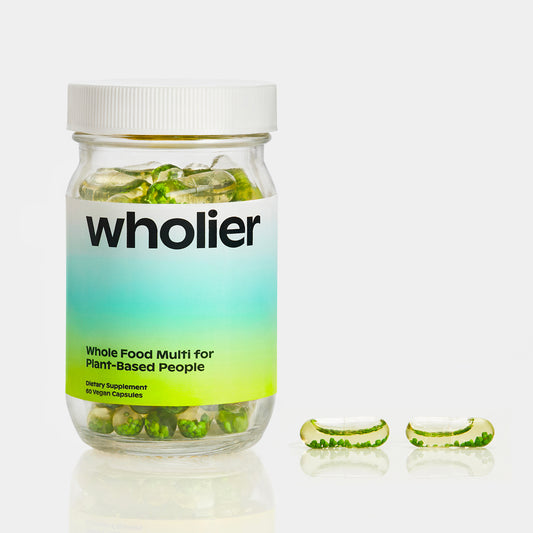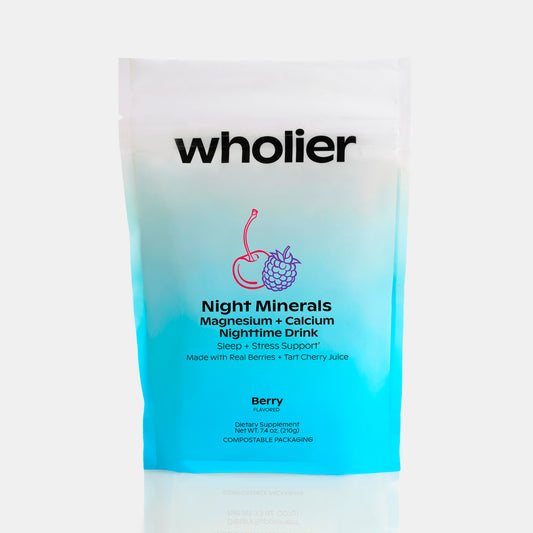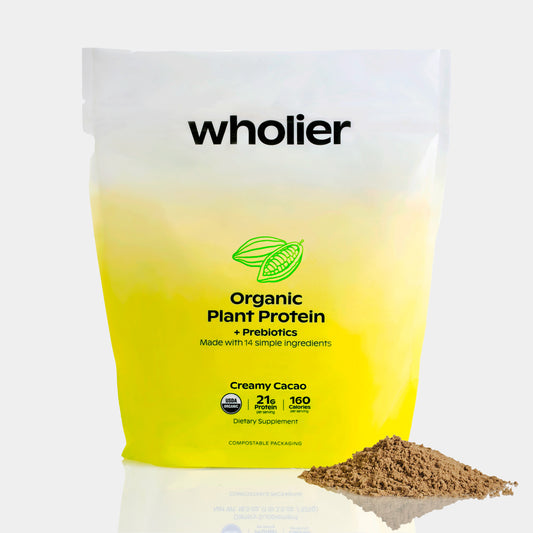
Xanthan Gum: Do We Really Need It in Our Food?
As an informed consumer, you've probably noticed the lengthy lists of ingredients on your food packaging, many of which sound more like a chemistry experiment than something you'd want to consume. One common ingredient is xanthan gum. Found in a wide range of products, from salad dressings to supplements, you may find yourself asking, "Is xanthan gum bad for you?" Let's delve into the world of this ubiquitous food additive and explore whether it's something we should be wary of.
What is Xanthan Gum?
Before we get into the potential impacts on our health, let's clarify what xanthan gum actually is. This widely used ingredient is a polysaccharide, a type of carbohydrate created by fermenting sugar with a specific bacteria - Xanthomonas campestris. It serves as a thickening or stabilizing agent in a plethora of food and industrial products.(1)
How Safe is Xanthan Gum?
Various health organizations have marked xanthan gum as safe. The U.S. Food and Drug Administration (FDA) categorizes it as a food additive that is "generally recognized as safe" (GRAS), which indicates it's considered safe based on long-term common usage or research.(2) Furthermore, the World Health Organization (WHO) and the European Food Safety Authority (EFSA) also vouch for its safety for consumption.(3,4)
Is Xanthan Gum Bad for You?
While xanthan gum is generally safe to eat, there are a few potential concerns. First, some people may experience digestive discomfort. A 2017 study found that consumption of xanthan gum led to increased stool output and water content, potentially leading to diarrhea. This was more prevalent in individuals who consumed higher amounts of xanthan gum than typically found in food products.(5)
Allergies are another point of concern. While rare, some individuals may have allergic reactions to xanthan gum. A 2013 study linked xanthan gum exposure, particularly in the form of dust during the manufacturing process, to occupational asthma and skin sensitivities.(6)
Does Xanthan Gum Affect Blood Sugar Levels?
There's some debate about the potential impact of xanthan gum on blood sugar levels. A review from 2016 suggested that xanthan gum could slow digestion, helping control blood sugar spikes after meals. However, this is an area that requires more comprehensive research to draw definitive conclusions.(7)
Is Xanthan Gum Compatible with a Gluten-Free Diet?
Those following a gluten-free diet might wonder if xanthan gum fits into their regimen. Xanthan gum is typically safe for gluten-free individuals and is often used in gluten-free baking to mimic the texture and consistency of gluten.(8)
Do We Need Xanthan Gum?
While it's recognized as safe by several health organizations, it's also true that xanthan gum is an additive. As with many additives, potential side effects might occur. Even though it is unlikely to cause harm in the small amounts typically found in food, the possible digestive issues and rare allergic reactions highlight the importance of considering the necessity of such ingredients in our diets.
Emphasizing whole, natural foods over those with a long list of additives is a healthy choice. And while xanthan gum is not the villain of the food industry, it is one of those additives that could be worth avoiding when possible. After all, less is more when it comes to food additives, right?
Sources:
(1) Sworn, G. (2009). Xanthan Gum. In E. B. R.A. Imeson (Ed.), Food Stabilisers, Thickeners and Gelling Agents. Wiley-Blackwell.
(2) U.S. Food and Drug Administration. (2021). Food Additives & Ingredients - GRAS Substances (SCOGS) Database. https://www.fda.gov/food/food-ingredients-packaging/generally-recognized-safe-gras
(3) WHO Food Additives Series: 17. (1982). XANTHAN GUM. http://www.inchem.org/documents/jecfa/jecmono/v17je22.htm
(4) EFSA Panel on Food Additives and Nutrient Sources added to Food (ANS). (2017). Re‐evaluation of xanthan gum (E 415) as a food additive. EFSA Journal, 15(2), e04668.
(5) Chiu, Y., Williams, P., & Gill, H. (2017). Effects of the consumption of a polysaccharide from New Zealand soft-shell clams (Xanthan gum) on fecal output in healthy individuals. Journal of Functional Foods, 33, 1-6.
(6) Lamy, B., Davies, J., & Nachman, K. (2013). Exposure to xanthan gum dust: Occupational asthma, hypersensitivity pneumonitis and allergic rhinoconjunctivitis. European Clinical Respiratory Journal, 0.
(7) Zare, F., Boye, J., Orsat, V., Champagne, C., & Simpson, B. (2016). Microbial production of value-added nutraceuticals. Current Opinion in Biotechnology, 37, 97-104.
(8) Miranda, J., Lasa, A., Bustamante, M., Churruca, I., & Simon, E. (2014). Nutritional Differences Between a Gluten-free Diet and a Diet Containing Equivalent Products with Gluten. Plant Foods for Human Nutrition, 69(2), 182-187.






